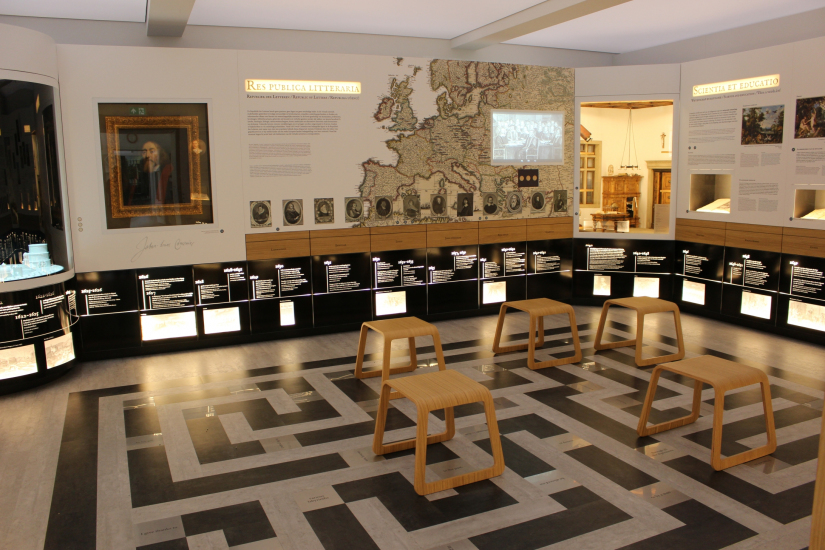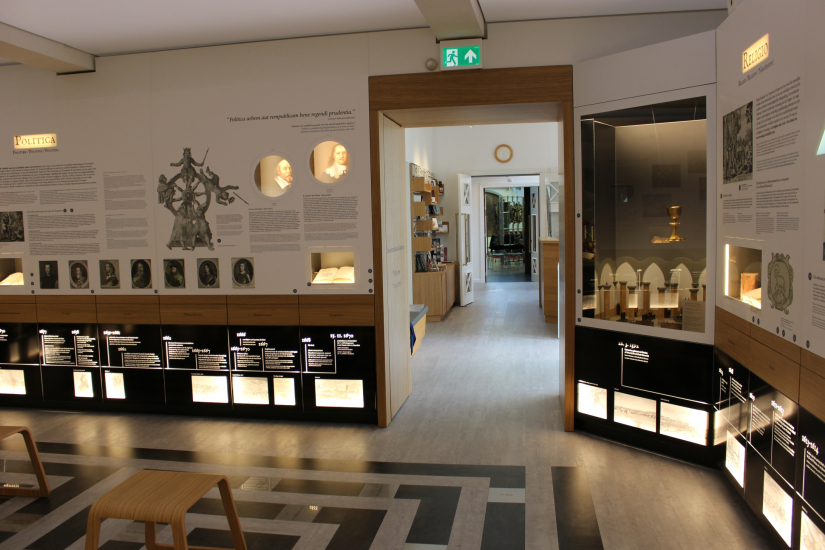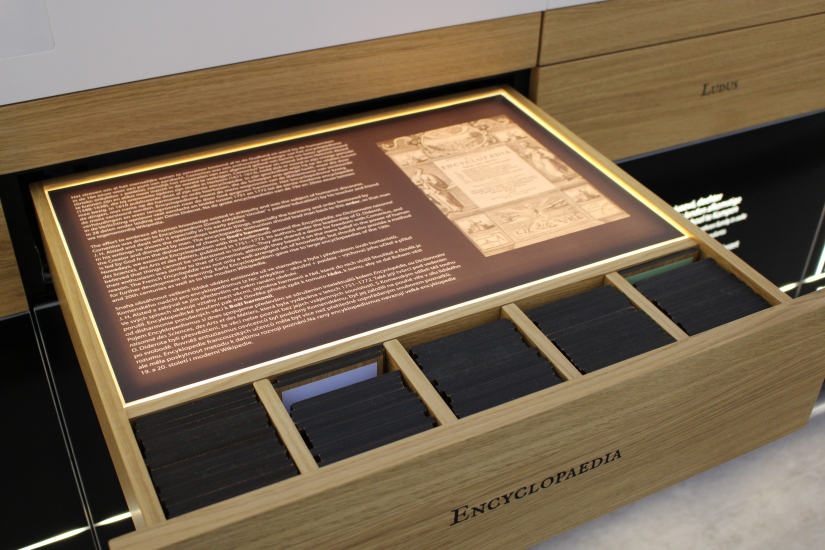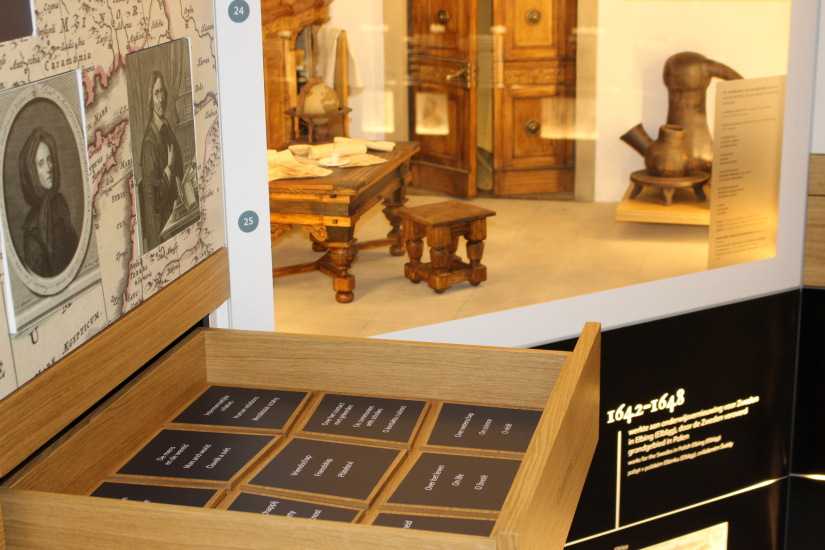The exhibition was prepared by John Amos Comenius Museum in Uherský Brod in cooperation with the Stichting Comenius Museum Naarden, as part of the National Celebrations of Jan Amos Comenius’ Anniversaries, with the support of the Ministry of Culture of the Czech Republic.
As the title suggests, the exhibition Mundus Comenii – the World of Comenius – presents John Amos Comenius as an important figure of the 17th century. As a member of the Republic of Letters he was in close contact with scholars from many countries and could develop his pansophic and philosophical ideas, but he also used the acquired knowledge and experience in practice.
As a theologian and minister of the Unity of the Brethren, he saw the problems caused by the religious division and, in his writings, called for a remedy. During the years he spent in education, whether as a student or as a teacher, he learned that everyone should have access to education and that learning by heart was not enough: understanding the essence was critical. Finally, according to Comenius, proper education could be the key to the elimination of wars, because the rule of wise and educated men would bring peace.
This exhibition follows the activities of Comenius and is focussed primarily on the following topics: RELIGION (RELIGIO), SCIENCE AND EDUCATION (SCIENTIA ET EDUCATIO) and POLITICS (POLITICA). The central wall is dedicated to the REPUBLIC OF LETTERS (RES PUBLICA LITTERARIA).


RELIGIO
John Amos Comenius proudly claimed to be a theologian. His work and deeds are intertwined with theological thinking. According to Comenius, religion is a spiritual art or the wisdom. Such art urges man to talk with God and make a communion with Him.
SCIENTIA ET EDUCATIO
Comenius talks rather about wisdom than about science. Human wisdom is derived from God. The purpose of education is to restore the broken image of God in Man and to rise him, so that he can recognize his place in the order of creation, overcome his corruption, and manage the world well. Man is not supposed to control nature as such, but go with the grain of human nature. This also applies to education, which is achievable and even easy if it happens naturally.


POLITICA
Politics of Comenius’ times was a chaotic labyrinth. In his opinion, politics should be prudence consisting in skilful management of public affairs, aimed at uniting the whole society and maintaining peace. Comenius promoted an optimistic belief that man and society can be perfected, thus opposing the idea of politics as a technique of power.
RES PUBLICA LITTERARIA
The Republic of Letters was an international and later also interconfessional community of scholars. Early modern intellectuals maintained personal contacts and correspondence, exchanged gifts – especially books, and informed each other about literary and scientific news regardless of distance or religious and political divisions of the continent. The Republic was invisible, had no boundaries, no troops or leaders, yet it was very influential. Comenius became an important figure in this Republic after 1631.



